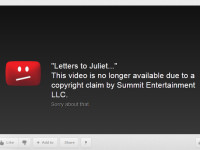The Trouble with the TPP series focuses today on the TPP’s effort to regulate how Internet providers and hosts address allegations of copyright infringement on their networks and sites (prior posts include Day 1: US Blocks Balancing Provisions, Day 2: Locking in Digital Locks, Day 3: Copyright Term Extension). The goals of the U.S. and Canadian government in the negotiations were clear from the outset: the U.S. wanted to export its DMCA notice-and-takedown system to the rest of the TPP, while Canada wanted to preserve its newly created notice-and-notice approach (more on the notice-and-notice system, which does a better job of striking a balance and preserving user privacy, here). In fact, Canada rushed through the notice-and-notice system without regulations (causing major problems of misleading notices) in order to argue that it should not be required to adopt the U.S. approach.
The end result is a compromise that allows Canada to maintain notice-and-notice, but no other TPP country can adopt it in order to comply with the ISP liability and notice rules. The Canadian rules can be found in Annex 18-E, which states that the standard TPP ISP rules do not apply to a country that meets the conditions of the annex “as from the date of agreement in principle of this Agreement.” Since that date is now long passed (October 4, 2015), no other TPP country can implement the notice-and-notice system to meet its TPP obligations. It should be noted that Chile, which objected to the special treatment for Canada, obtained a similar exception for its system based on the U.S. – Chile Free Trade Agreement in Annex 18-F.












